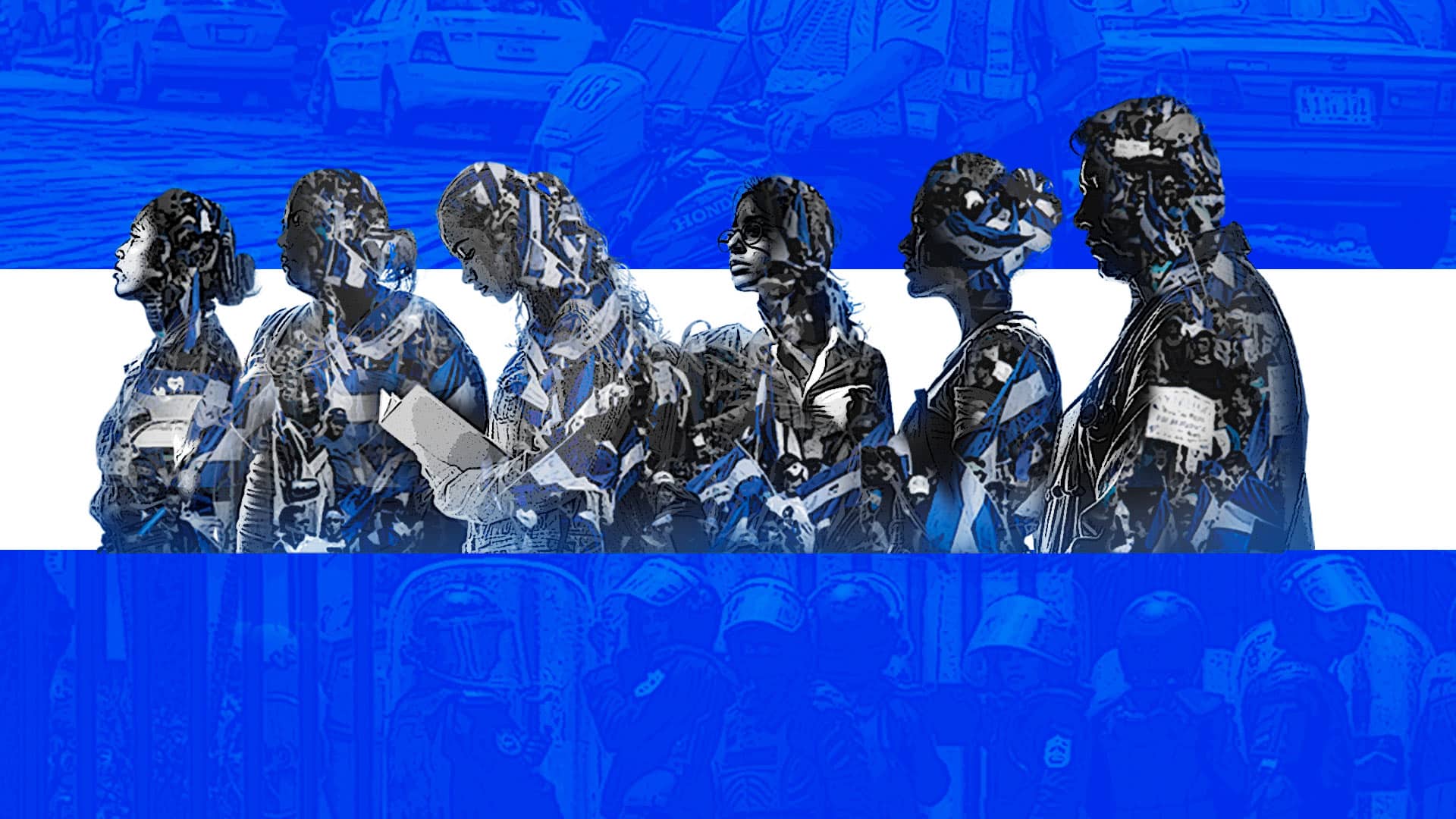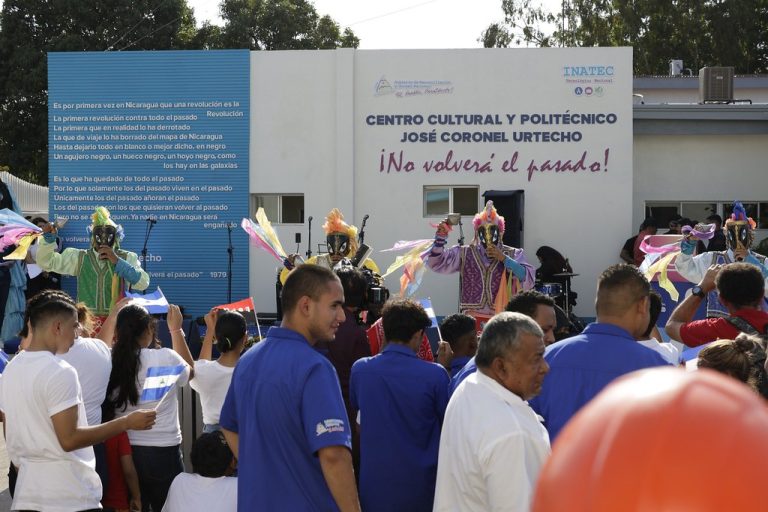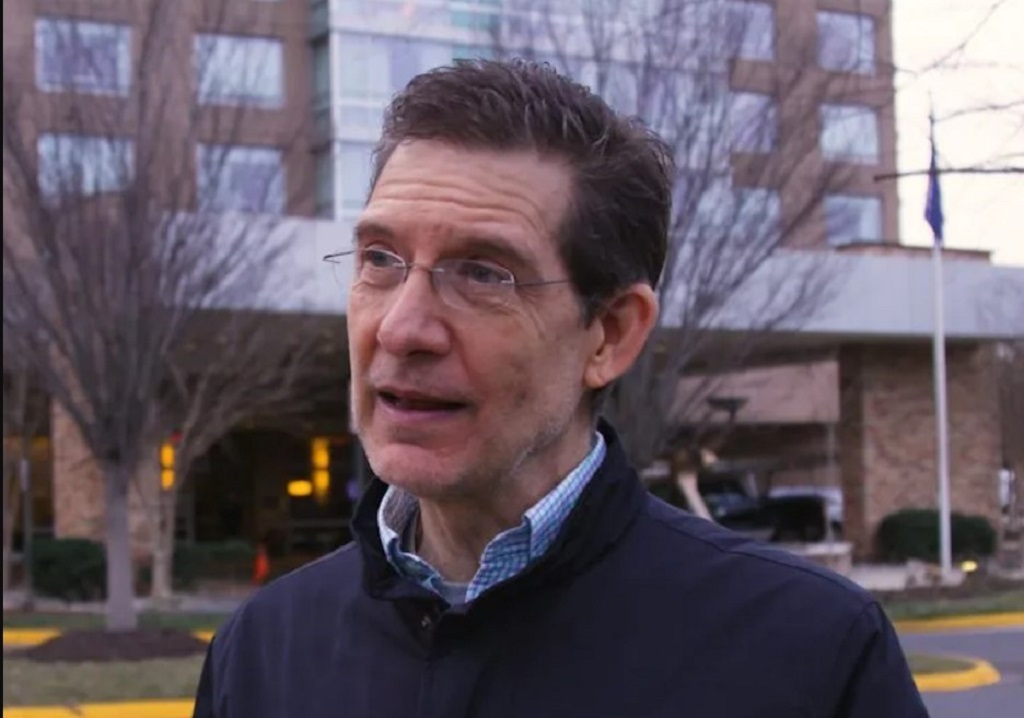25 de abril 2023

Six Years With April in Tow: Life Under Nicaragua's New 'Normal'

PUBLICIDAD 1M
PUBLICIDAD 4D
PUBLICIDAD 5D
Manager Juan Lorenzo Holmann estimates the assault on freedom of the press to be the theft of an investment of “20 million dollars, plus lost profits”

Ortega officials and militants inaugurate the "José Coronel Urtecho" center. Photo: From El 19 Digital
The general manager of La Prensa and former political prisoner, Juan Lorenzo Holmann, estimates that the unconstitutional confiscation of La Prensa newspaper is the dispossession of an investment of “twenty million dollars, plus lost profits and other intangible damages”, which represents the largest of the 250 confiscations executed by the regime since 2018.
Facing the finalization of the theft of the facilities of the newspaper La Prensa and the inauguration of a State Technological Center in charge of INATEC, Holmann revealed that his lawyers are preparing the case to present it before the international courts of justice, and called into question the alleged investment of seven million dollars made by the State in the facilities of La Prensa.
Holmann, a political prisoner who was sentenced to nine years in prison and subsequently banished and stripped of his Nicaraguan nationality, explains that “there is no legal basis” to support the theft of the newspaper's facilities. However, he warns that the regime of Daniel Ortega and Rosario Murillo intends to add the “confiscation” of La Prensa, as an accessory penalty imposed on him, as a citizen.
Is there any legal basis, law, decree, or court ruling that has been cited by the regime to justify the confiscation, now definitive, of La Prensa newspaper?
There is a sentence condemning me, in which they say that I am sentenced to nine years in prison and I have to to pay a fine of so many millions of córdobas and so many thousands of dollars that add up to more or less 3,000,000 dollars, but they say absolutely nothing more than that, and that they disqualify me from being able to practice my profession.
Then my lawyers filed an appeal and that appeal is accepted. At that moment, the judge stops dealing with the case and it goes to the Court of Appeals, but after they banish me -at the end of February- they changed the sentence, but the judge changes it. That sentence includes the confiscation of the properties that belong to La Prensa. But La Prensa is not the owner of the property, the owner of the property is a society in which I do not even participate. So they confiscate or steal the properties, because there is no legal basis to do that.
Did the Board of Directors of La Prensa, or its associates, receive any notification saying that this property, these assets, this real estate, these printing presses, this equipment, are now the property of the State and that they have been assigned to Inatec?
No, there is no communication of any kind. There has never been any type of communication. The only form of communication is notification letters sent to my lawyers, redundantly, notifying them about my case. But there is no type of notification, nor have I seen, for example, in La Gaceta, any type of article that says that the properties belong to the State. The only thing I have seen, which appeared in La Gaceta, is the allocation of a budget to do some work in our facilities.
When you were arrested by the police, it was supposedly to continue an investigation of alleged customs fraud relating to the facilities of La Prensa. At the end of the day, is that what you were accused of in that mock trial? Why were you convicted?
A raid and at the same time a customs fraud order arrived (at the newspaper). That is to say, some people from Customs arrived. When they searched all the facilities they found some boxes and furniture belonging to the Violeta Barrios de Chamorro Foundation in a warehouse, they took them away, but they never said anything about it. When I arrived at the trial, because I did not have access to a proper defense and I never met my lawyer until the day of the trial, I realized that they were accusing me of money laundering, that I was an accomplice or an accessory to a case of money laundering of the Violeta Barrios Foundation.
There is no legal notice addressed to La Prensa newspaper. From this accessory penalty attributed to you, can we deduce that they are trying to use the judicial sentence imposed on you as a natural person and transfer it to La Prensa?
Exactly. That is to say, La Prensa was never in the trial, La Prensa is not part of my trial nor of my conviction. There was never a charge or anything against La Prensa. They condemn me, and because of my condemnation, they punish La Prensa.

This is the fifth news media that has been confiscated. Before that, 100% Noticias, Confidencial, Radio Vos, and Radio Darío were confiscated, and there are another 50 media that have been closed and more than 200 properties that have also been confiscated, a great part of them belonged to non-governmental organizations. This specific case against La Prensa, what impact do you consider it has on the legal security climate in the country, and for private enterprise?
The truth is that the investment climate should be on edge because there is no legal security. The first thing one thinks is, what is the legal security that I have for my investment to be kept safe, that they are not going to confiscate it, that I am not going to lose it? The truth is that we are facing a situation that has been seen before, and that is that there is no legal security in Nicaragua.
Is it possible to estimate the cost of this investment that is being stolen from La Prensa?
There are tangible things and perhaps intangible things that were lost there. The tangible things are the properties, the machinery, the buildings. We had a valued estimate – which we had made for insurance purposes and because they have to be up to date in our financial statements – that was around twenty million dollars, including the land and everything. Another thing that we have to add is the lost profit that we had from 2018 until the seizure, with all those paper, ink, and input embargoes that we were getting. That lost profit also has to be added to the theft of properties. So it's not just twenty million, it's much more.
But there are also intangible things, which are a series of historical documents. There is, for example, the newspaper library, which is not only the newspaper library of La Prensa (but) there is the complete newspaper library of many of the written media that have existed in Nicaragua in the last 97 years of La Prensa's existence. There you have copies of the first edition of Barricada, Novedades, Centroamericano, Flecha, a lot of media, and a series of historical documents, some of which are perhaps historical documents that only pertain to the (Chamorro) family. Thank God, there are a series of documents that were given to Tulane University previously, and those documents were not lost.
There is an assessment of what this means as an assault against press freedom, and on the other hand, we have the economic dimension of the confiscation. If La Prensa does not have some protection under national law – because they (the government) are basically acting outside the law, in a completely arbitrary way – can La Prensa resort to international tribunals?
Yes, indeed. We are making the case so that we can take it to international courts. The international courts have already said that it is not necessary to exhaust the steps in Nicaragua in order to go to the International Court. Why? Because they say that it has already been completely proven that the judicial instances in Nicaragua are not working, that there is no due process of defense in Nicaragua and therefore they can go directly to the international instances. Yes, we are preparing the case for the international instances to give a ruling, which we are sure will be in our favor, and when Nicaragua becomes a republic again we will see how we will recover or compensate or put into practice that ruling that will be obtained.
La Prensa is confiscated, but continues to report through digital platforms, can censorship be defeated through digital journalism?
Not only we, but all the exiled media are defeating censorship. It is not easy. It is a very difficult thing. It is an emotionally very difficult thing for the people who practice journalism in Nicaragua. But it is defeated. When we definitely ran out of paper, we announced and said that we were momentarily interrupting the printed circulation of the newspaper, but that we were going to continue doing our work through digital platforms, we did that and we can do it because our readers continue to seek out La Prensa. Now, La Prensa continues to be that platform where people can express themselves and we give a voice to those people who do not have a voice. So we will continue to do that work as long as God gives us life and continues to be with us.
How do you interpret that the Government has baptized the confiscated La Prensa building as Centro Tecnológico José Coronel Urtecho, when the poet Coronel Urtecho, in 1973, sent a telegram to La Prensa, saying: “For the conscience of the country, when La Prensa stops publishing, it is as if nothing happened or everything is a lie”?
It is ironic that they are using the name of the poet Coronel Urtecho, with whom (La Prensa) had a very marked closeness or affinity. And the truth is even more ironic when they also add (the caption) “and the past will not return”. What past are they referring to? Because indeed that is what we are looking for, that the past does not return and the past is them, and they will pass.
The Government boasted that it made an investment of almost seven million (dollars) to rehabilitate La Prensa, how does this Government investment compare with the plundering to which La Prensa is being subjected?
I would like to see those numbers because I do not know where they could have put seven million dollars. There is someone there who benefited a lot from that. We had planned to build, before 2018, a building, and that building cost us 1.3 million dollars. So, let's see, if I have 1.3, where are the other 5.7? I don't know. There are machines there. All the machines were working perfectly. I don't know where they can put seven million dollars. I would like to see that. Now, if they did invest that money, then God be blessed because when we get it back we're going to have a much better place than we had when we left it.
This article was originally published in Spanish in Confidencial and translated by our staff.
PUBLICIDAD 3M
Confidencial es un diario digital nicaragüense, de formato multimedia, fundado por Carlos F. Chamorro en junio de 1996. Inició como un semanario impreso y hoy es un medio de referencia regional con información, análisis, entrevistas, perfiles, reportajes e investigaciones sobre Nicaragua, informando desde el exilio por la persecución política de la dictadura de Daniel Ortega y Rosario Murillo.
PUBLICIDAD 3D